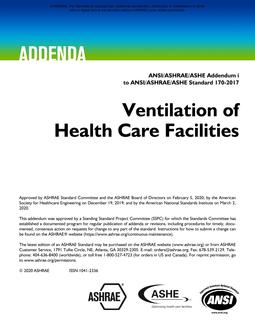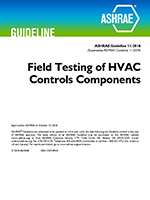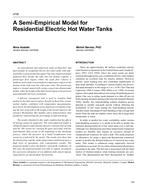In the direct cooling system, water is cooled to 40 to 50°F (4 to 10°C) in cooling towers or ponds during cold weather, stored in large aquifer thermal energy storage systems and retrieved for direct cooling as required. The system is the next step beyond the “free cooling system” now becoming popular. For example, the storage capacity available for the price of two wells and pumping systems in a typical aquifer thermal energy storage system is 1010 Btu (1010 kJ) for a storage system volume 100 ft (30 m) wide, 400 ft (120 m) long, and 200 ft (60 m) thick for a 20°F (11°C) temperature variation is near ground temperatures, insulation on the pipelines is not required. Approximately 60% of the continental United States is in the vicinity of adequate aquifers for this system.
Individual storage systems can be used economically with major buildings; however, smaller buildings or homes must be grouped into an integrated community storage system. An economic study shows a community storage system costs approximately $345 per home for a typical neighborhood of 32 homes.
Aquifer parameter requirements on well spacing, flow rates, pressure drops, etc. are emphasized. Economic studies predict that both operating cost and capital cost are reduced by utilizing this system.
Citation: Symposium, ASHRAE Transactions, Volume 86, Part 2, Denver, Colorado
Product Details
- Published:
- 1980
- Number of Pages:
- 14
- File Size:
- 1 file , 960 KB
- Product Code(s):
- D-DV-80-06-1


